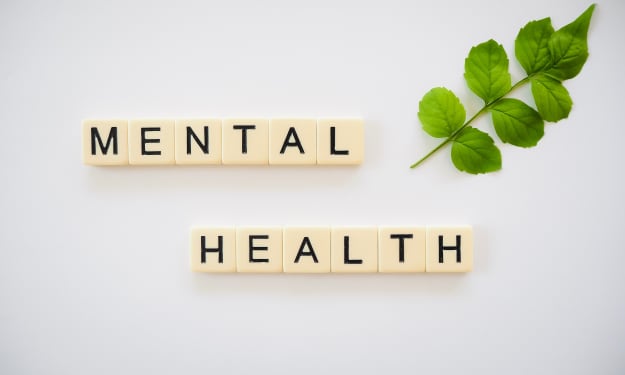
First teach you a simple and incredible method that can greatly relieve your tension and anxiety:
Sit down in an empty space, close your eyes, and shift your thinking from "What will this thing cost me?" to "What will I have by doing this?"
"Watch out for the good! I know when you're nervous and anxious, you get stage fright, you want to run away, you even deny yourself, but for now, you just need to sit quietly and think about doing it yourself for a few minutes. What advantages does the event have.
(But it's not the advantage you get from comparing with others, but how much energy and preparation you have put into this matter.)
Because in times of stress, catastrophic thinking will occupy our brains, make us feel worse and worse, and even define ourselves as losers before we even start, it will form a hint to you: "I'm finished"
So before going on stage, you may have gone through the embarrassing scene of forgetting words twenty times and being eliminated forty times in your mind.
But if you can detect that these thoughts are wrong and correct it in the right way, it will often greatly affect your future performance.
And that "I can do it" internal drive in turn encourages you, and since I've done so much, it's definitely going to be alright this time around. And even now, there is nothing to be afraid of.
If you don't believe me, you can try it next time, I believe you will come back to thank me
I call this "positive belief", that is: a way of thinking about confronting negativity and pessimism and excavating one's own positive~
Well, a small method, the next is the core method, get ready to watch it slowly with me~
1. I used to like to arrange a huge and detailed schedule for myself. Before doing something, I would write down various solutions for things that could be expected to happen. I felt a sense of accomplishment in the early stage, and I felt that everything was working. within their control.
But the side effect is that every little thing that goes beyond my expectations makes me panic, and the long-term mental strain leads to more and more mistakes.
I'd think, "Probably fail, so many mistakes, must be laughed at."
As a result, I would fall into tension and anxiety all day long, and even if it was a small mistake in the eyes of others, I would not be able to accept it.
Later, I felt something was wrong: I wrote down a plan for myself to avoid tension, so why did I feel more and more anxious?
Later I finally found out... Many times when I was nervous and anxious, it was not because I made a mistake in one thing, but because it was difficult for me to accept that I made a mistake.
Because it was difficult for me to forgive my momentary mistakes, I chose to deny it directly. As someone who has high demands on myself, I would even deny myself directly.
I said something before: the more you are afraid of mistakes, the more tense you are, the more mistakes you will make.
So I realized that it's not that it's bad to have mistakes, but that you can't make yourself perfect in everything.
Some time ago, I tried the field of live broadcast. Because of the first live broadcast, I prepared a lot of scripts, pictures, lighting, etc., and I was very afraid of various accidents during the live broadcast.
Although I made adequate preparations, there were still accidents during the live broadcast. The network was often stuck, and my nerves were tense from the beginning. Because of a small mistake, I became more flustered, and even the manuscript in front of me could hardly be seen clearly.
Later, because the effect of the live broadcast was really unsatisfactory, I apologized to the guy in the live broadcast room: "I stayed up late last night to script the script, I didn't rest well, and I made various mistakes. I was really nervous and brought a very bad experience to everyone. "
When I expressed my emotions, the audience in the live broadcast room even comforted me: "Pay attention to rest", "It's hard work".
After receiving many warm replies from everyone, I am no longer asking myself to do things perfectly, just follow my own feelings.
When I was a little more relaxed with myself, the tension and anxiety disappeared.
Finally, the first live broadcast ended successfully. My goal is to write a healing work in the future.
I made a mistake in the live broadcast today, does it mean that my previous efforts were in vain?
So, it doesn't mean that you can't ask yourself to do things well, but you can't make yourself perfect in everything.
If you want to see how you feel, if you are a little nervous, then relax for a while. If you feel that you are weak in any area, then consolidate it and let your emotions nourish your current self.
Focusing on our own feelings allows us to relax and breathe, and not collapse into the midst of uncertainty.
After all, everyone can have nervousness. We are all human, and we all have mood swings. Unless it is a robot, it is just a bunch of programs. Those who are eager to deny when they have emotions seem tragic, and those who fall into emotions seem to fall. Freedom, but that's all unreasonable and doesn't cherish one's own manifestation.
People need to forgive themselves and allow themselves to fail occasionally.
But failure does not mean that you should give up on yourself or do nothing.... I think you have an open-minded mentality of doing your best and obeying destiny after making great efforts for a certain thing.
In short, don't think of yourself as a matchstick, think of yourself as a rubber band.
In my later personal experience, in fact, it is only when I accept my own feelings that the sense of control over events will return to my own hands. You can do better.
So I'm offering you a solution to your problem that may be a little different than others. Others may want you to be smarter, more powerful, and more emotionally controlled. And I want you to be more at ease, more relaxed, and more of yourself.
1. Direct the brain to engage in positive self-talk
When you find yourself constantly stressed and anxious and trapped in negative thoughts, learn to consciously evaluate these thoughts. Instead of obsessing about where things failed, look for solutions to problems.
If you find that you can't do anything about it, tell yourself "I can't control everything" instead of blindly blaming yourself, because this is a secondary injury to yourself.
Take the time to remember happy things, write down the accomplishments of the day, and affirm yourself.
2. Positive cues
Didn't you find out? The more you worry about something happening, the more likely it will happen.
Psychologist Pavlov believes that suggestion is the simplest and most typical conditioned reflex of human beings.
Our brains are not very good at dealing with negative commands. When we receive a message of "don't do this", we tend to ignore "don't" and focus only on "do this".
When I keep saying to myself, "Don't stay up late," my brain focuses on "staying up late."
So, instead of always sending negative instructions, we should deliver positive cues.
When you are nervous and anxious, you should be aware of the negative thinking in your mind in time and replace it.
For example: instead of saying "I can't stay up late", say "I have to go to bed early". Affirmations can also help us feel certain and give us more inner strength.
If you are the type who is about to give a speech, and you are so nervous that you can’t control your mind, you can use external force to chew a chewing gum and chew it hard, but remember to spit it out before you go on stage.
3. Good at using "waiting mode"
I believe everyone has experienced that once there is something important to do, before it comes, you don’t want to do other things.
When I was in school, the department notified me to give a speech on the stage as a representative, and to take a photo with the dean.
From the moment I received the notice, I was already nervous and looking forward to it, and I couldn't even get up to writing the manuscript in the afternoon, and my mind was full of: "How to do it".
It seems that only when things are done can they feel at ease to do other things.
Nothing can be done until these "big things" really come.
I originally thought it was because my concentration was too poor, but later I found out that it turned out that my brain had entered the "waiting mode".
This is a mechanism by which our brains respond to "big events," and everyone's waiting patterns are different.
Some take an hour to prepare, some take a day.
But the longer you wait, it doesn't mean you're wasting your time or that you're weird.
Rather, it means that you are cautious about this coming event and want to be well-prepared.
It doesn't matter, at this time, you can put down what you are doing and rest for a while
If you still feel that waiting takes a lot of time, you can start with smaller things first, as a breakthrough to start. For example, if you want to tidy up the room, then find the rag first. Use small steps to push big steps.





Comments
There are no comments for this story
Be the first to respond and start the conversation.